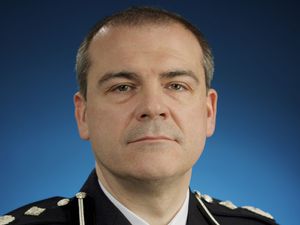'Huge problem' on Midlands knife crime, says chief constable
The chief constable of West Midlands Police has said it is a "huge problem" that services to steer young people away from knife crime have disappeared.

Dave Thompson said some youngsters can be diverted away from violence with early interventions such as conditional cautions, including cognitive behavioural therapy and restorative justice.
He told BBC Radio 4's Today programme he did not advocate the approach for "hardened gang members".
But he added: "We have just got to be careful what we don't do is see the answer as criminalising ever more groups of young people, perhaps for very minor offences, because I think that would just compound the problem."
Mr Thompson welcomed an extra £7.5 million funding boost from the Government, but said his force has 2,000 fewer police officers than in 2010.
"There is an absolute resourcing issue and I would not hide from that," he said.
"We have got some extra funding, which is helpful, but I think there is a huge issue here.
"There is no question in this force area that when we look to diversion services, they don't exist in the way they did."
Analysis
His comments come after the BBC today said 100 people have been fatally stabbed in the UK so far this year and follows research published last week which suggested cuts to youth services in England could be linked to the rise in knife violence
Knife crime reached a record level last year in England and Wales with 40,829 offences involving knives or sharp objects recorded by police in 2018.
Analysis by the All-Party Parliamentary Group (APPG) on Knife Crime found areas suffering the largest cuts have seen bigger increases in knife crime, although it is not possible to directly compare the geographical areas covered by police forces and local authority boundaries.
The City of Wolverhampton, which is policed by West Midlands Police, along with the City of Westminster, were the worst hit, with youth services cut by 91%, according to the figures obtained under freedom of information laws.
City of Wolverhampton Council said in its response to the request for information that more young people use the OnSide Youth Zone, which has attracted private and grant support, than ever used youth centres.
Javed Khan, chief executive of charity Barnardo's, said: "Children are children. They are not born with knives in their hands, but when there is little or no possibility of a positive future - what we call a 'poverty of hope' - they are highly vulnerable to exploitation and criminality.
"Government needs to work with urgency and in partnership with children's services, educationalists, charities, social workers, youth workers, the criminal justice system and local communities to tackle this crisis."





